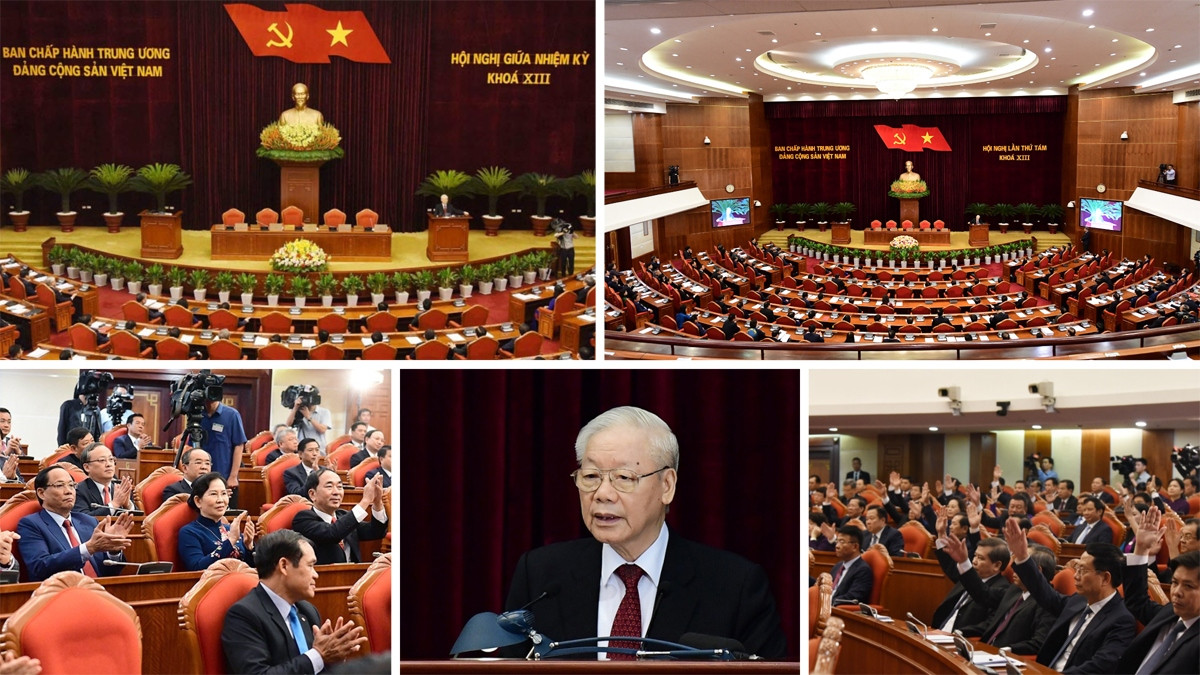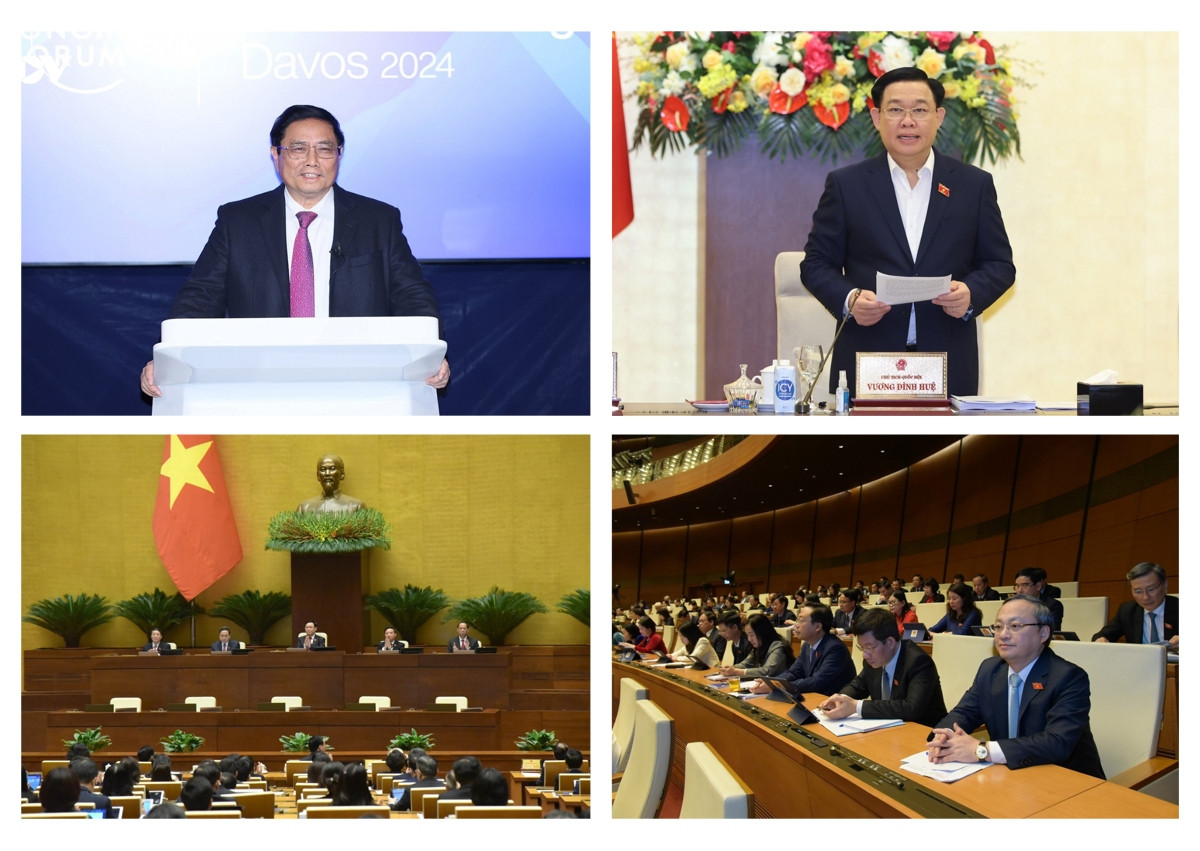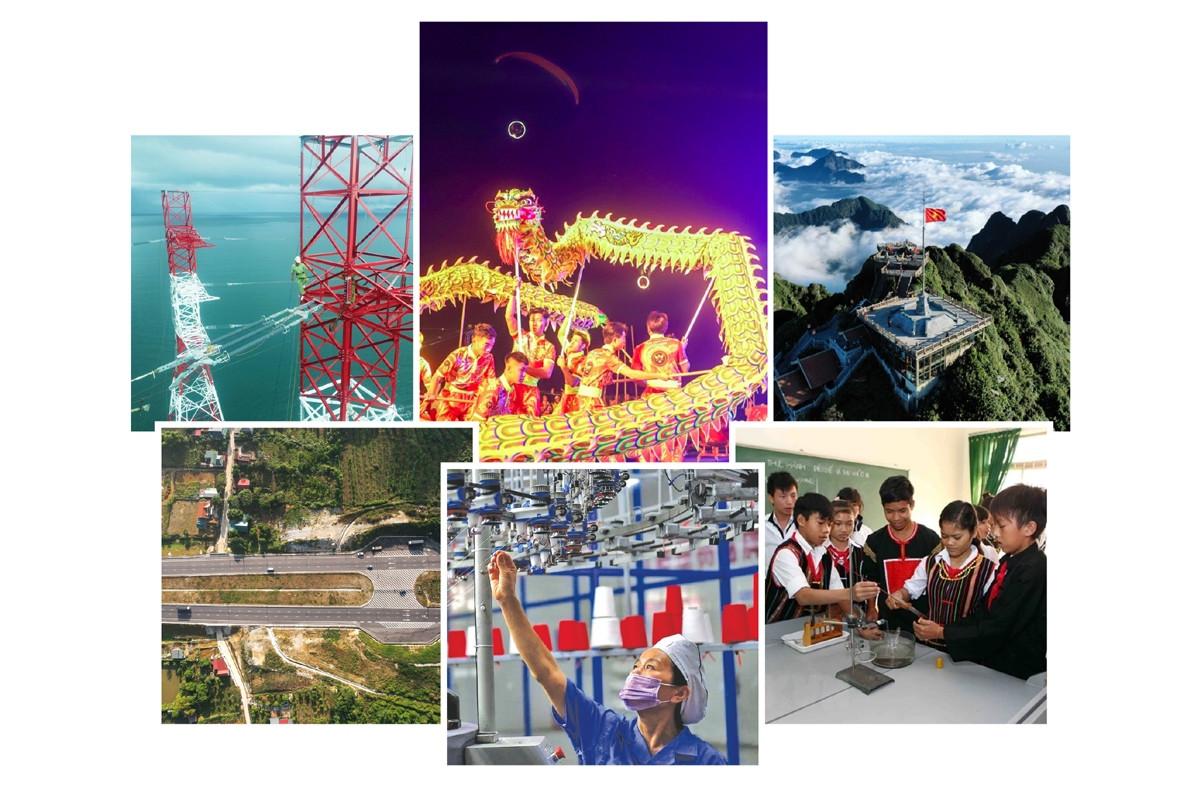
A new spring in the Year of the Dragon has arrived, creating fresh hope of turning Vietnam into a dragon thanks to forward-thinking policies to be introduced and absolute trust people place in the clear-sighted leadership of the Communist Party.
Power control tightened

At the sixth National Party Congress held in 1986, the Party affirmed that, “the Party leads, the people are the masters of the nation, and the State manages the entire society.” This mechanism addresses the three most basic political relationships in the country today, which are the relationships between the Party, State, and people, in order to solve the most fundamental problems of socialist democracy. Making this mechanism work well and effectively requires the creation of motivation for each factor and smooth coordination among the three factors, with a view to both controlling the power in each factor in particular and controlling each other in general.
Power control is the key to preventing corruption. At a recent meeting held to review corruption prevention and control for 2012 - 2022, Party General Secretary Nguyen Phu Trong affirmed the Party-led campaign has recorded “specific and important gains”, thereby creating a positive effect throughout society and truly “becoming an irreversible trend”. In fact, corruption has been gradually prevented and controlled, making an important contribution to maintaining political stability, further spurring socio-economic development, and strengthening public trust in the Party and the regime.
Furthermore, between the Party congresses, the Party and State constantly seek to strengthen the power control framework by approving resolutions on personnel work, inspection and supervision in official appointment, and public expenditure management. Most recently on October 27, 2023, the Politburo issued Regulation 131-QD/TW on controlling power, preventing and combating corruption and negativity in inspection, supervision, and enforcement of Party discipline, as well as in inspection and auditing activities.
It is said that clean hands are needed to combat corruption and negativity. Only those who have clean hands are duly qualified enough to inspect and supervise others in a task described as extremely difficult and sensitive. But those same hands can easily be turned unless they are strong enough to resist temptation. Reality shows that during the fight against corruption, some will fall victim to material temptations, stumble, and have to be disciplined by the Party and State.
Talents to be protected and encouraged

A country, if it wants to develop strongly, must gather and promote the intelligence of every person, as well as attracting talented people into the public service system. Party General Secretary Trong has said that those who dare to fight against wrongdoings and can confront with interest groups to do their job well must be protected.
Last year saw the National Assembly adopt a resolution on a vote of confidence for people holding positions elected or ratified by the National Assembly and local People’s Councils. This resolution is considered to be a tool for controlling power. Along with that, the Party has introduced a policy aimed at encouraging and protecting competent officials.
The fact is that when the corruption fight has been intensified, many high-ranking officials have been found to commit offence and have submitted to discipline. Immediately, a psychological fear of responsibility is instilled in officials, causing them to make no decisions and to pass the buck to those in higher positions. Such a mentality apparently leads to stagnation in the entire public service system.
Judging the situation, the Politburo in September, 2023, issued conclusions on encouraging and protecting officials who dare to think, do, and take responsibility for the common good. The Government later also issued a resolution to specifically implement the Politburo’s conclusions.
Important decisions and policies

At an extraordinary session held in the early days of 2024, the National Assembly adopted two bills, including the amended Land Law, following a score of debates. The Land Law is an important legal document which seeks to regulate many socio-economic activities related to all organisations and individuals. Meanwhile, the amended Law on Credit Organisations is expected to address hidden problems faced in the commercial banking system, including cross-ownership, domination or manipulation, and ambiguous relationships between shareholders, as well as the purchase of bonds or savings books incorporated into life insurance contracts, many of which have caused frustration and loss of trust in credit institutions among local people.
In January, Prime Minister Pham Minh Chinh attended the World Economic Forum in Davos (Switzerland) where he delivered a speech at the Country Strategic Dialogue on Vietnam as part of the forum. He affirmed that promoting transformation and new growth drivers can be viewed as the key to rapid and sustainable development. In order to step up the process, he suggested that priority should be given to perfecting institutions in favour of investors; developing transport infrastructure and digital infrastructure; developing high-quality human resources; and restructuring the economy in association with a growth model that prioritises the development of renewable energy, green transformation, digital transformation, and the semiconductor industry.
Along with those positive signals, the eighth plenum of the Party Central Committee approved decisions and orientations towards protecting the Fatherland in the new situation, consolidating great national unity, innovating and improving the quality of social policies, and bringing into full play the role of the contingent of intellectuals. Those decisions are therefore expected to spread new vitality, new determination, and a new vision for the cause of national construction and defence.

It is worth remembering that in the early days of the spring 2021, the Communist Party of Vietnam convened its 13th national congress that adopted a resolution showing a strong resolve to build a happy and prosperous nation. Accordingly, Vietnam aims to become a high-income developing economy by 2030 and a high income developed economy by 2045.
Vietnam is entering into the Year of the Dragon 2024. According to traditional beliefs, the Dragon symbolises strength, power, wealth, and prosperity. Strategic policies and decisions, along with strong actions of the entire political system, are therefore set to give fresh impetus to the nation’s desire to become a dragon in 2024 and beyond.
Source: VOV